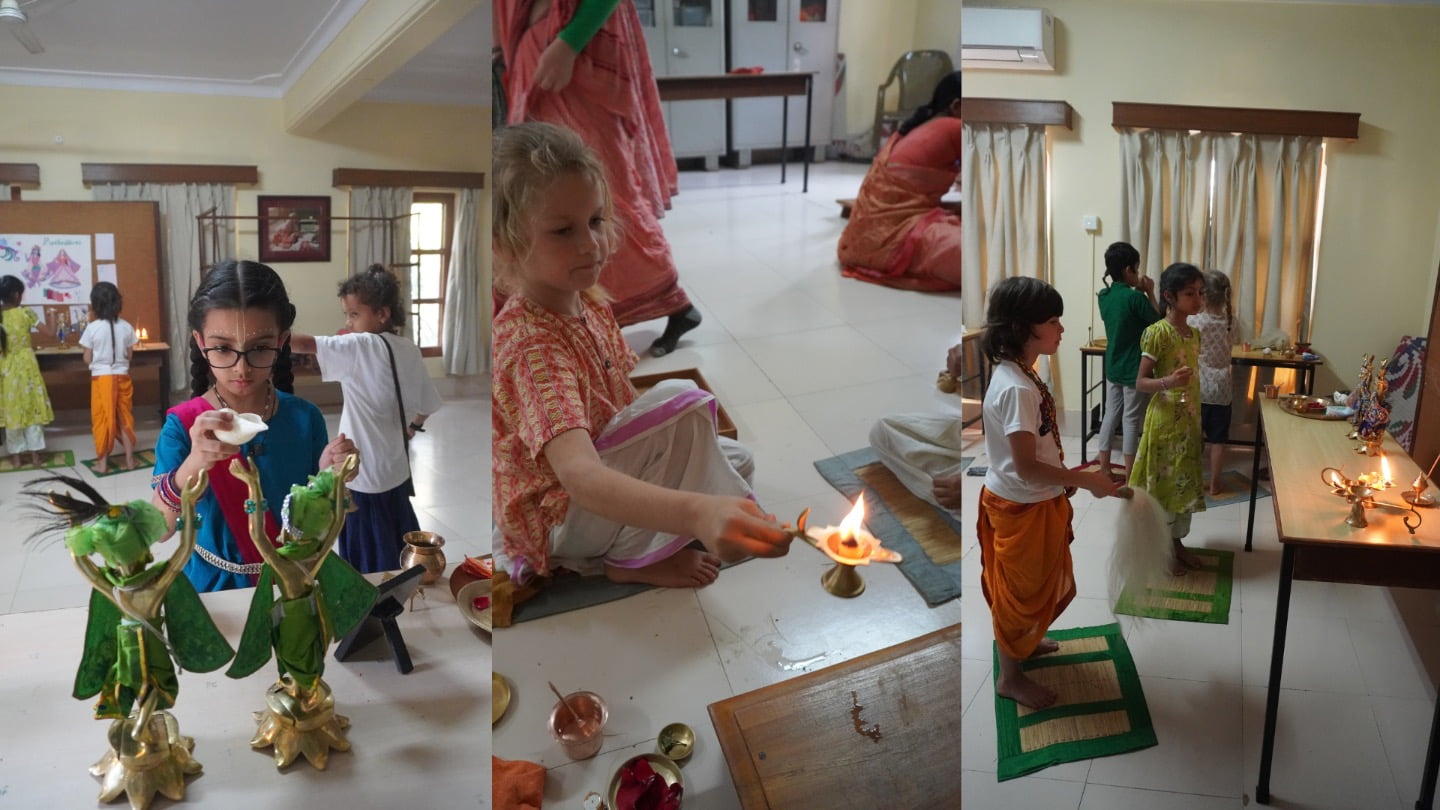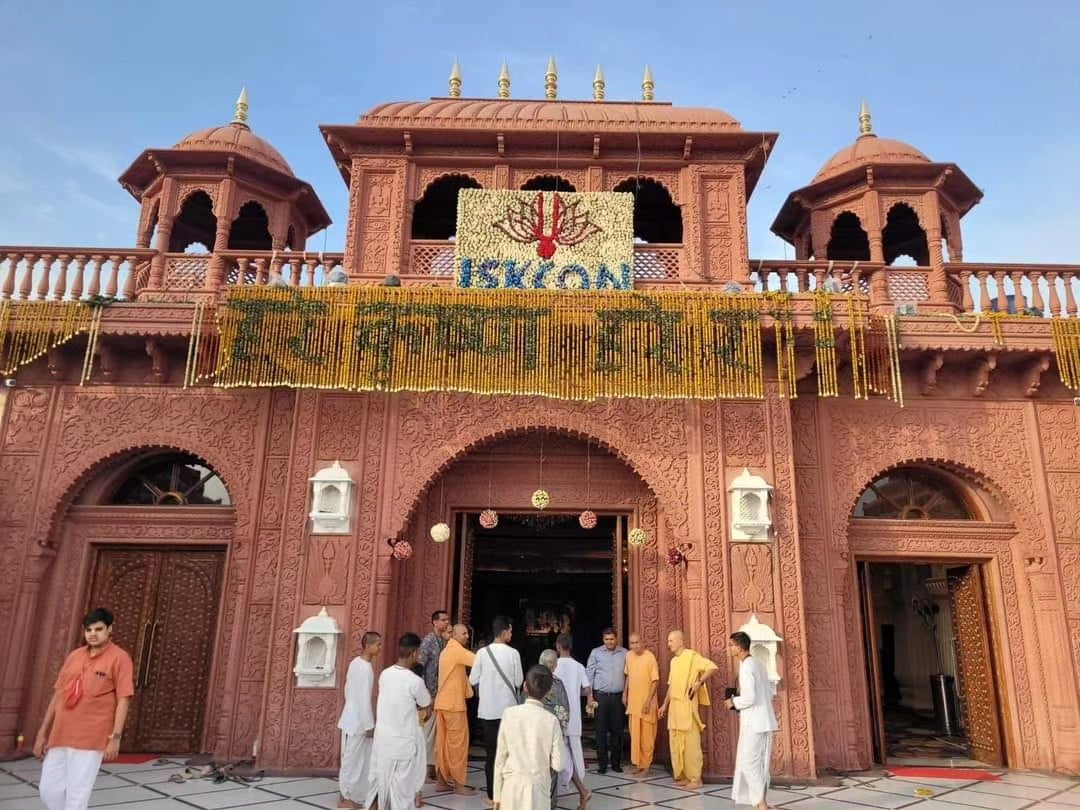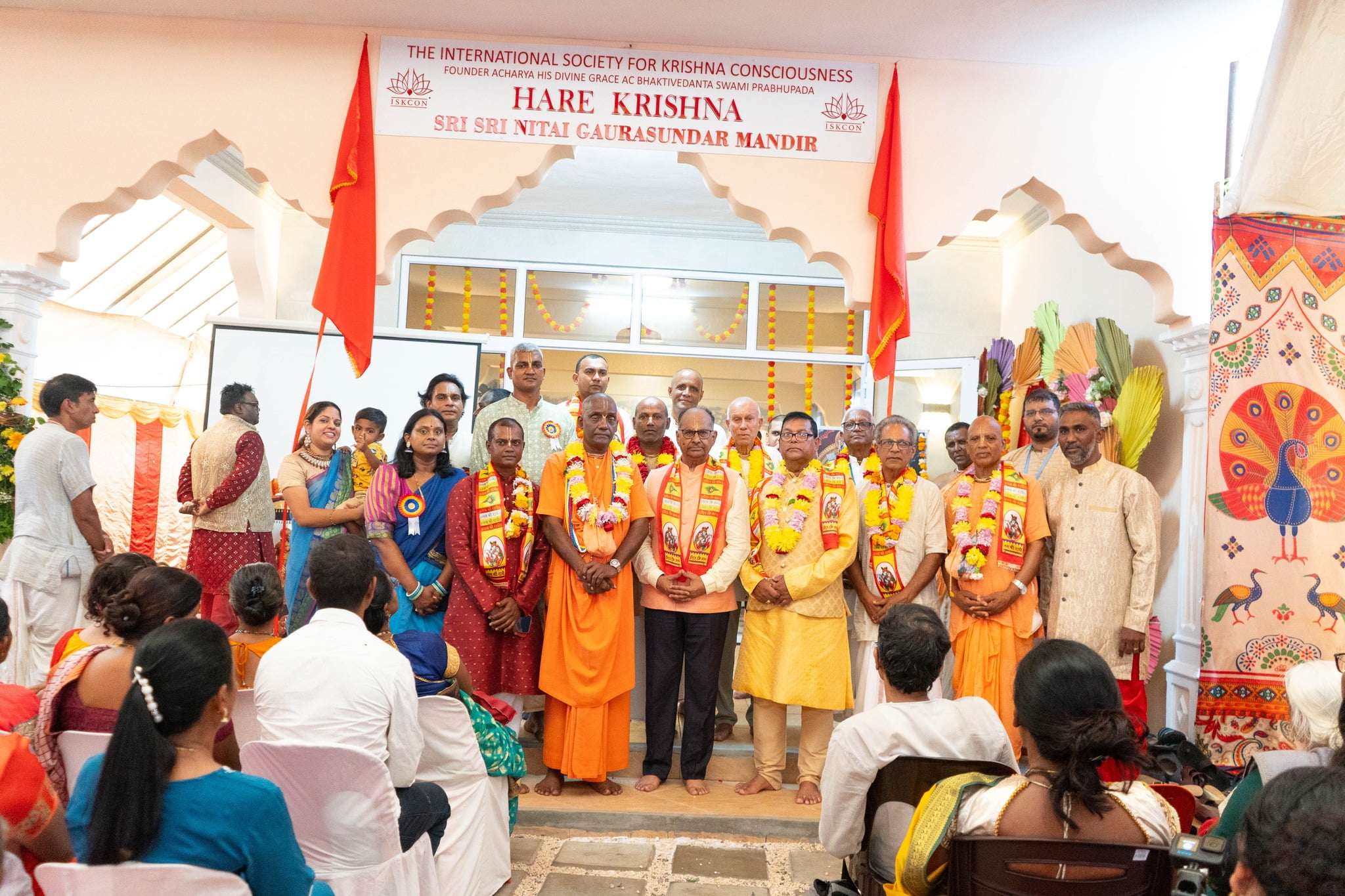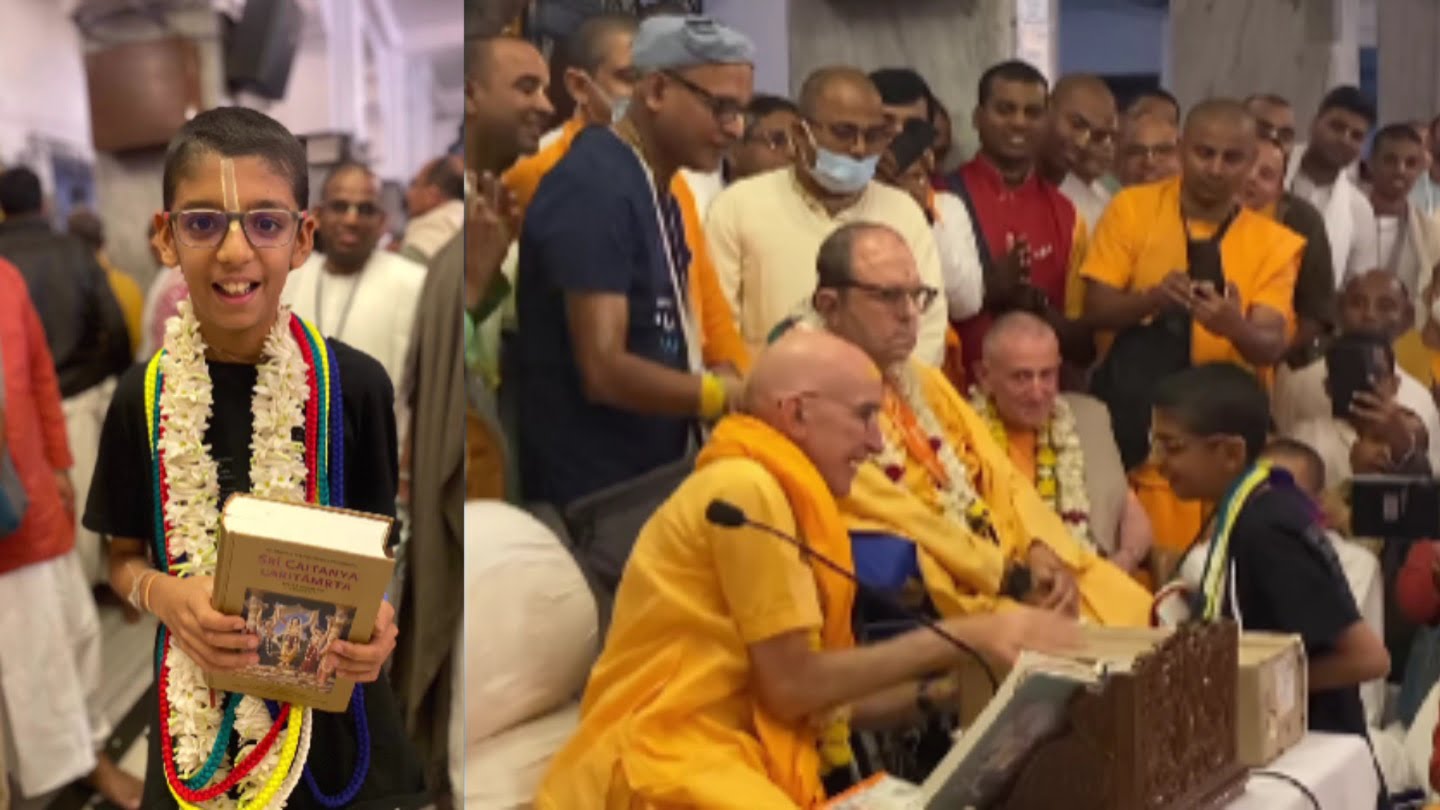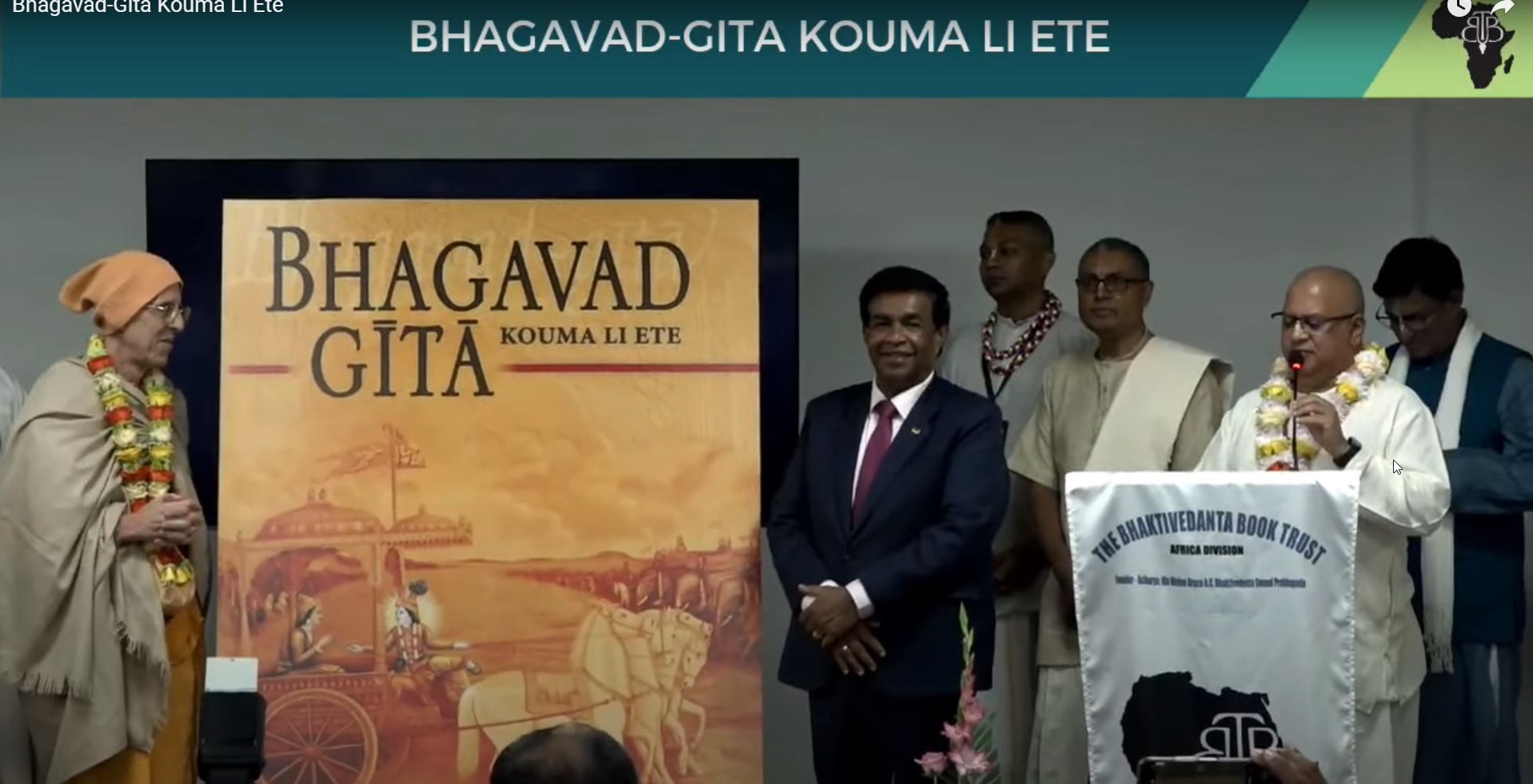ISKCON Environment Initiative Invites You To Green Your Center
By Vandana Dasi | Feb 04, 2023

“Vaisnava philosophy leads us to be activists,” Anuttama Dasa, ISKCON GBC member, and Global Communications Director, said, citing Isopanisad Mantra 1, which states that everything within the universe is owned by the Lord and therefore, one should accept only what is necessary for His maintenance.
“This is a very heavy philosophical statement about how we are supposed to live in the world. Nothing in our tradition says the world was created for us to have dominion over. Everything belongs to Krishna, and He’s giving it to us as a gift. It is His property, His energy. He is the creator, the owner, the proprietor, and the enjoyer. In addition to the world being His energy, it is nondifferent from Him. It is sacred to us.”
The IEI Team invites you cordially to participate and find out more about what you can do to protect and sustain the Lord’s gift to us: Earth.
The ISKCON Environmental Initiative (IEI) held its first-ever global online workshop on November 18, 2022. The two-hour session was attended by 25 participants from North America, Europe, Australia, and Africa and was led by IEI co-directors Anuttama Dasa and Shyamananda Krishna Dasa. The Global Workshop can be viewed online in its entirety at https://iskconenvironment.org/.

Anuttama Dasa, one of the founders of the initiative and host of the event, opened the workshop with a keynote speech highlighting three environmental activism aspects: Vaisnava philosophy, Krishna’s pastimes, and Srila Prabhupada’s personal example.
The IEI’s core document, the “Three Tiers of Environmental Sustainability,” aka “Three Tiers” is a stepwise guide for local temples, communities, and congregations. It enables them to independently conduct environmental audits in the categories containing guides in five areas: Food, Energy, Waste Management, Water, and Education/Outreach/Culture. Tier One efforts begin with lower-level standards for the abovementioned categories, which focus on reducing resource waste, which Tier Three efforts include advanced dedicated to sustainable practices. Communities may opt to take a Three Tiers audit and create action items that align with their budget and staffing resources to reduce their environmental impact. Participants were suggested to take the next steps by creating a Green Team in their temples and taking the Assessment Form, which is available on the website.
Anuttama Dasa also narrated several stories which illustrated Srila Prabhupada’s environmental activism. In one such story, Srila Prabhupada was in Mayapur and noticed that someone had left their room locked with the fan running. He became visibly upset and heavily chastised the devotee. Of this incident, Anuttama Dasa noted that there was so much conscientiousness in everything Srila Prabhupada did and that he would strongly object when devotees would “take the earth for granted, take energy for granted. We take Krishna’s gifts for us for granted, and we don’t take care of them.”
The goals of the IEI are to discuss and promote environmental practices which can be implemented in temples, communities, and private households. Some of the issues discussed at the Global Conference were moving away from plastic prasadam cutlery and plates and incorporating metal or compostable flatware; addressing energy loss sustained from old temple buildings; and changing the consciousness of devotees who may not be aware of the need to work toward sustainability.

Ras Vilas Dasa, a presenter at the conference, identified the root cause of environmental sustainability’s destruction as the transition from simplicity to modernity, particularly those of the population partaking in an affluent lifestyle. In his presentation “Temple Environmental Sustainability he identified points where interventions can be applied to create a circular economy, lowering the environmental footprint of the temple. These interventions can be made using a 3S (Spirituality, Simplicity, and Sustainability) and 3R (Reduce, Recycle, and Recover) approach, which are codified in the Three Tiers guide. Ras Vilas Dasa is a professor and graduate director for the Civil and Environmental Engineering Department at the University of Utah.
During the event, Anuttama Dasa gave examples of how Krishna sometimes became personally involved in protecting the environment. Referring to subduing the Kaliya snake, he said that it was “one of those pastimes where Krishna tightens his belt, jumps in, and deals with this demoniac creature who is polluting the waters and the environment of Vrindavan. That’s kind of what we have to do: we have to tighten our belts because there are real issues here.”
Anuttama Dasa as a leader of the IEI has a call to action and a vision for all ISKCON to aim towards. “We really want to get the temples greener, but we also want them to be organizational examples of what we need to be doing in our homes,” he said. “Particularly as Vaisnavas, it is our duty should be concerned about the environment. If we say we are concerned about simple living and high thinking, then we have to do it. We have to live it, individually and in our communities and in our families.”
The ISKCON Environmental Initiative is endorsed by the ISKCON Governing Body Commission, the Regional Governing Body of Europe, and the North American Council.
For more information on how you can green your center or home, please go to:
Iskcon.environment on Instagram
ISKCON Environmental Initiative on Facebook



